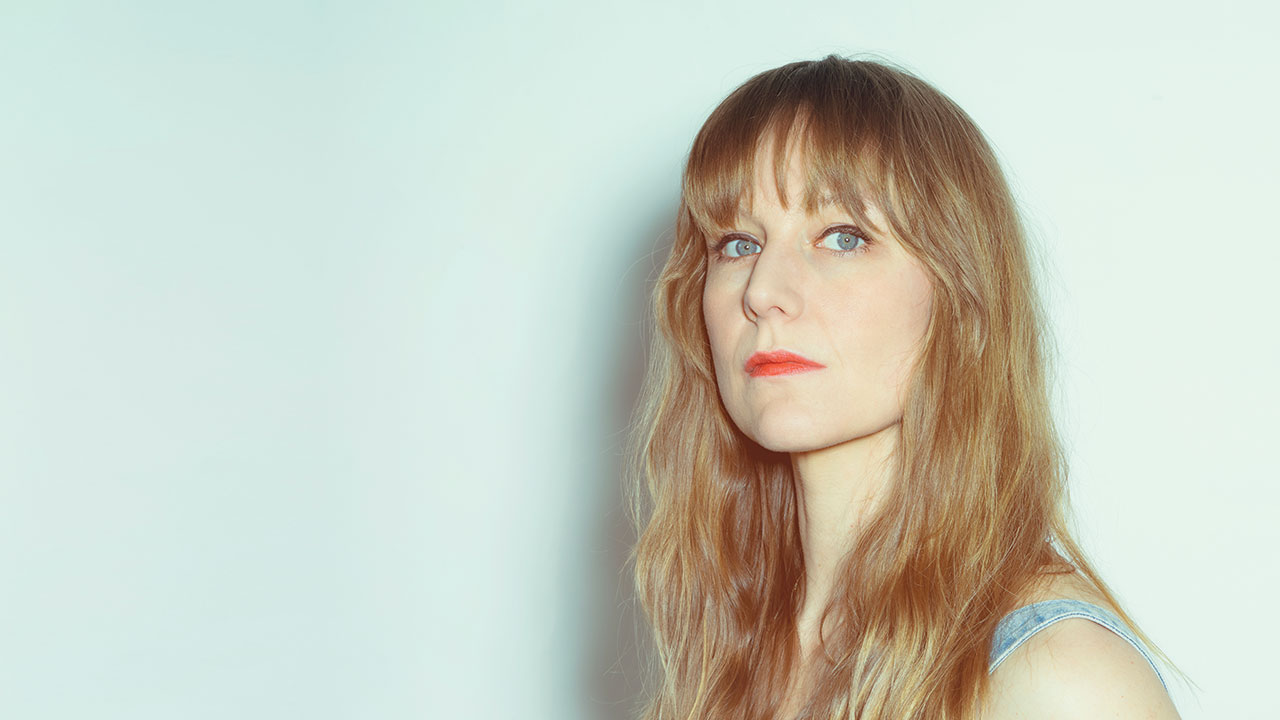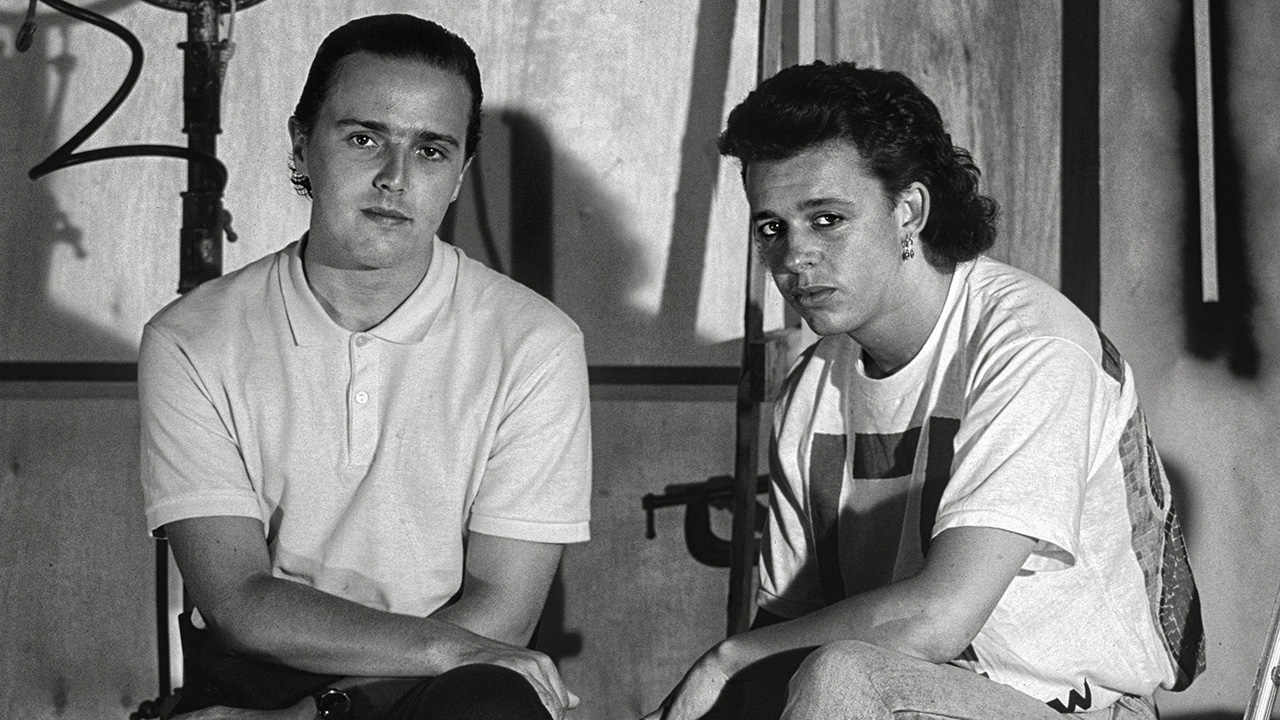Hedvig Mollestad on taming the mother of monsters on Ekhidna
Smashing the boundaries between rock and jazz, Hedvig Mollestad tells Prog about being inspired by mythological monsters, trusting her listeners to keep up, and why she’s not closing the coffin lid with Ekhidna

“It’s not a concept album, no,” says Norwegian guitarist Hedvig Mollestad about her new release, Ekhidna, “but I also think it’s nice to have one thematic palette that I work within to find ways to attach this to something more concrete than just music.”
It takes its name from the mythological Ekhidna, a half-human/half-snake being who was the mother of a host of monsters in Greek mythology, from the many-headed Hydra to Cerberus, who guarded the entrance to Hades. Mollestad is best known for the six riff-packed, heavy rock meets progressive jazz albums that she’s cut with her trio featuring bassist Ellen Brekken and drummer Ivar Loe Bjørnstad. However, Ekhidna sees her working in a new sextet playing music that she composed as a commission for the 2019 Vossajazz Festival.
“My daughter was very into dragons at the time,” says Mollestad, “so we were looking at what types of dragons there are in history. There are so many dragons and so many monsters, each representing something that keeps your world of ideas going. When we saw Ekhidna, I knew instantly that this was the monster I was looking for. Being the mother of all the other monsters, it was clear to me that was going to be the embodiment of the project.”
The music explores themes around motherhood and humanity’s inability to live in harmony with nature, and the line-up isn’t just twice the size of the trio, it has a boldly different sound too. There’s no bassist, instead Mollestad is joined by Marte Eberson and Erlend Slettevoll both on Fender Rhodes, with trumpeter Susana Santos Silva, Elephant9’s Torstein Lofthus on drums, and percussionist Ole Mofjell. “If you’re starting a new project, you have to take it away from your previous patterns,” says Mollestad. “I wanted to try to make music that sounded different and one of the ways to do that is to choose different musicians to approach it.”
Marte Eberson usually tours with pop group Highasakite, and she’s also the daughter of Jon Eberson, Mollestad’s old guitar teacher from music academy. “I know where she’s coming from,” says Mollestad. “She has this deep connection with jazz, and she has this presence, everything she plays is a small explosion.”
Erlend Slettevoll provides a counterpoint to the eruptive Eberson, with Mollestad observing that Eberson approaches the Rhodes like a guitarist where Slettevoll has a pianist’s mindset. “I wanted them to complete each other and to be able to pull different things out of them in the music,” she says.
Among the maelstrom of the two Fender Rhodes, there’s a rich rhythmic layer from Mofjell on percussion and Lofthus on drums. “He’s very trustworthy rhythmically,” says Mollestad about the latter, “but he still takes a lot of chances and challenges the other players. Also, he’s a monster.”
Sign up below to get the latest from Prog, plus exclusive special offers, direct to your inbox!
Mofjell’s participation allows the band to move in unexpected directions. In the title track, Mofjell leads them into an Afro-Cuban groove. “He was playing it at some point, we thought, ‘This is really cool,’” says the guitarist. “I wanted to turn up this percussion thing, so it’s mixed quite loud to make it in touch with this idea that people are playing together live. It’s not just a production ingredient, it’s an instrument being played by someone who could play this thing until he’s bleeding. It’s hard work playing those drums that hard.”
The presence of Susana Santos Silva on trumpet reflects the fact that Mollestad’s father was a trumpeter and the combination of guitar and trumpet is one that’s close to her heart. “I’ve been listening to Jim Hall/Art Farmer, and also the works Chet Baker did with guitarists, all the guitarists who worked with Miles Davis,” she says. “I wanted to work with that, but I didn’t want to have a shredding trumpeter. I wanted a sound-oriented trumpeter that could break up this riffy thing I was going to make. I’ve been listening to Susana and playing with her in Mats Gustafsson’s Nu Ensemble, so I knew she had a classical background, which she had been playing a lot before she chose the path of improvised music. She’s very strong, which you have to be to cut through all of this.”
The music on Ekhidna first debuted live at Vossajazz before Mollestad took the project into the studio. When she records with her trio, the goal is always to capture as much of their live energy as possible. “It’s been important to me not to touch it too much, just to leave a take as it is,” she says, “but this time it was more important for me to shape it up a little, not like in a pop way in producing sounds, but being more focused on the structures.”
There were a few tracks from the live set that didn’t make it onto the record, so there may be more music from this project down the line, and when they play live there’s certain to be plenty of improvisation and exploration. That’s not to say there wasn’t room for spontaneity in the studio. “Most tracks last for a long time, there is a lot of information,” says Mollestad. “That is very demanding on the listener but at the same time I trust the listeners to be interested in what they hear, so you want to give them something that can’t just go in and out of their ears. There are layers here that I’m positive are giving the listeners different experiences the second, third and fourth time they listen, but at the same time you have to be kind and not give them an hour of things that have to pay attention to. There’s got to be a bit of relaxation as well. I do what I can but I try to keep the listener in mind, wanting them to have a cool experience and wanting them to know it’ll be different if anybody should ever be able to listen to this live.”
That leads to the challenge of launching a project during a global crisis. “There was a discussion whether we should release this project now or at some other point but it was important to release this now,” says Mollestad, noting that Vossajazz was a year ago. “We recorded it in January, it’s really important in these times for me not to postpone everything to next year and make 2021 a copy of what was supposed to happen this year. These projects move on no matter what pandemic is touching the world and to me it’s also really important to try to keep my music moving forward.”
Live shows are starting to return in Norway and, at the time of writing, Mollestad had two album launch gigs booked in Oslo and a Norwegian jazz festival at the end of June. “This is the year for Ekhidna,” she says. “Next year there will be a new trio record coming out, so we really want to do live shows this year as far as possible.”
For UK fans waiting for a long-overdue return visit, there was a trio gig at Café Oto in London on the books for August, but Mollestad is waiting to see whether it will be rescheduled. Against this backdrop of uncertainty, Mollestad wanted Ekhidna to end up on upbeat note with the track One Leaf Left. The title references ecological decline, but it’s not about despair. “That song is the last one we play in the set,” she says, “but the ending is supposed to be powerful and open. You’re not supposed to feel like the coffin lid is closing, it’s still open.
This article originally appeared in Prog issue 111.
After starting his writing career covering the unforgiving world of MMA, David moved into music journalism at Rhythm magazine, interviewing legends of the drum kit including Ginger Baker and Neil Peart. A regular contributor to Prog, he’s written for Metal Hammer, The Blues, Country Music Magazine and more. The author of Chasing Dragons: An Introduction To The Martial Arts Film, David shares his thoughts on kung fu movies in essays and videos for 88 Films, Arrow Films, and Eureka Entertainment. He firmly believes Steely Dan’s Reelin’ In The Years is the tuniest tune ever tuned.

